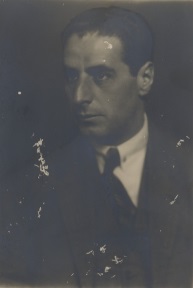Related Research Articles

Ernst Toch was an Austrian composer of European classical music and film scores, who from 1933 worked as an émigré in Paris, London and New York. He sought throughout his life to introduce new approaches to music.
Alfred Whitford (Fred) Lerdahl is the Fritz Reiner Professor Emeritus of Musical Composition at Columbia University, and a composer and music theorist best known for his work on musical grammar and cognition, rhythmic theory, pitch space, and cognitive constraints on compositional systems. He has written many orchestral and chamber works, three of which were finalists for the Pulitzer Prize for Music: Time after Time in 2001, String Quartet No. 3 in 2010, and Arches in 2011.

Brian Cherney is a Canadian composer currently residing in Montreal, Quebec.
James Dillon is a Scottish composer who is often regarded as belonging to the New Complexity school. Dillon studied art and design, linguistics, piano, acoustics, Indian rhythm, mathematics and computer music, but is self-taught in composition.
David Newton Lumsdaine is an Australian composer. He studied at the New South Wales Conservatorium of Music. He moved to England in 1952 and for a while shared a flat with fellow expatriate, the poet Peter Porter, with whom he collaborated on several projects including the cantata Annotations of Auschwitz (1964). In London he studied composition at the Royal Academy of Music with Lennox Berkeley. In 1970 he took a lecturing position at Durham University. In 1981 he took a post as senior lecturer at King's College London. He is published by The University of York Music Press and Universal Edition.

Donald Henry Kay AM is an Australian classical composer.
Makoto Shinohara is a Japanese composer.

Lior Navok is an Israeli classical composer, conductor and pianist. He was born in Tel Aviv. His music has been performed internationally by orchestras and ensembles including the Oper Frankfurt, Nuernberg Opera, Israel Philharmonic Orchestra, Boston Modern Orchestra Project, and the Tanglewood Festival Orchestra. Amongst the awards he has received are those from the Israel Cultural Excellence Foundation and the Massachusetts Cultural Council. He has also received awards from the Fromm Music Foundation, Lili Boulanger Memorial Fund Award, and Israel Prime Minister Award. In 2004, he was one of seven composers awarded commissions for new musical works by the Serge Koussevitzky Foundation in the Library of Congress and the Koussevitzky Music Foundation.
William Jay Sydeman was a prolific American composer. He was born in New York. He studied at Duke University, and received a B.S. degree in 1955 from the Mannes School of Music, having studied with Felix Salzer, Roy Travis, and Roger Sessions. He received his master's in music from the Hartt School in 1958, studying under Arnold Franchetti and Goffredo Petrassi. From 1959 to 1970 he joined the composition faculty at his alma mater Mannes School of Music.
Gary Kulesha is a Canadian composer, pianist, conductor, and educator. Since 1995, he has been Composer Advisor to the Toronto Symphony Orchestra. He has been Composer-in-Residence with the Kitchener-Waterloo Symphony (1988–1992) and the Canadian Opera Company (1993–1995). He was awarded the National Arts Centre Orchestra Composer Award in 2002. He currently teaches on the music faculty at the University of Toronto.
In music, a decet—sometimes dectet, decimette, or even tentet—is a composition that requires ten musicians for a performance, or a musical group that consists of ten people. The corresponding German word is Dezett, the French is dixtuor. Unlike some other musical ensembles such as the string quartet, there is no established or standard set of instruments in a decet.
Jan Tausinger was a Romania-born ethnic Czech violist, conductor and composer.
Paul Angerer was an Austrian violist, conductor, composer and radio presenter.

Janet Maguire is an American composer who was born in Chicago and resides in Venice, Italy.

Madeleine Isaksson is a Swedish/French composer.

Mariano Etkin (1943–2016) was an Argentine composer.
References
- ↑ "Talib Rasul (né Stephen Alexander Chambers) Hakim." The Black Perspective in Music 16.2 (1988): 245-46
- 1 2 Alison Deborah Jones. "Hakim, Talib-Rasul." Grove Music Online. Oxford Music Online. 14 February 2010.
- ↑ Columbia College Chicago, Guide to the Talib Rasul Hakim Collection (2020). CBMR Collection Guides